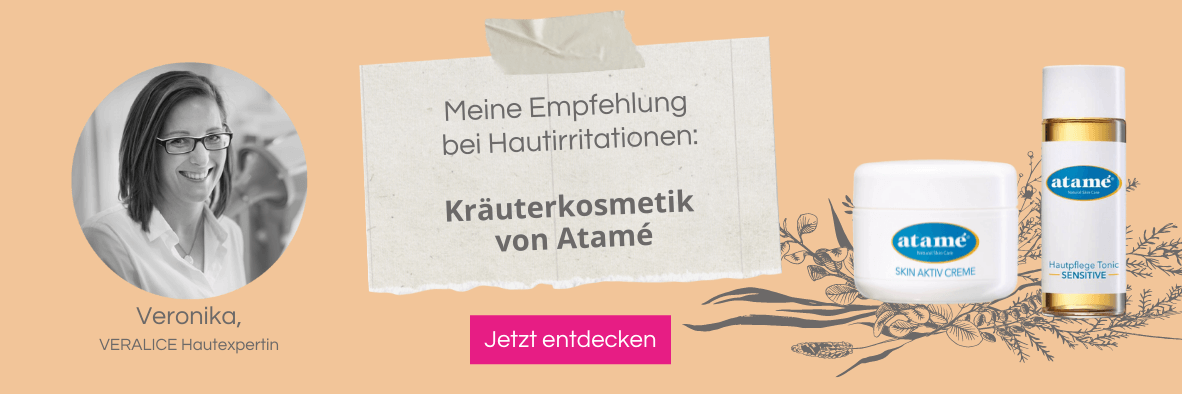SKIN IRRITATIONS – WHAT IS IT?
Skin irritations have different causes, but they usually lead to the same symptoms: redness, pimples, itching and unpleasant burning of the skin. These symptoms usually lead to visible veins or red pustules, which are the result of malformations of the venous system. These veins and red pustules are also caused by skin diseases such as Rosacea, Couperose and Neurodermatitis. In this article, you'll learn how to properly treat redness and irritation and what you can do to prevent them.
CHRONIC SKIN DISEASES
Neurodermatitis, rosacea and Couperose are chronic inflammatory skin diseases that manifest themselves primarily in very severe itching, inflammation, dry skin and visibly enlarged reddish veins on the face. The diseases are genetic and are exacerbated by a lack of contact with bacteria and dirt in childhood. Even if the symptoms of chronic diseases are similar, they are different diseases. For example, couperose is often milder than rosacea. With couperose, the symptoms also tend to occur in fits and starts, while with rosacea they lead to permanent redness. Nevertheless, the skin irritations are triggered by the same causes.
The most common triggers for skin irritations are:
- Dried skin, e.g. due to too frequent washing or heating air
- Allergens from the environment
- Substances that irritate the skin, e.g. Clothing made from wool, perfumes or fragrances and cleaning products
- Fatty acid salts (soaps, vegetable soaps)
- Extreme cold, dryness or high humidity
- Substances from (skin) care products
- External influences (heat, cold, UV radiation)
- Caffeine, nicotine etc.
WHAT HELP FOR SKIN IRRITATIONS?
Since skin irritations and facial redness are bacterial skin inflammations it is important to use anti-inflammatory natural active ingredients and to make sure that the skin is protected sufficient moisture is supplied. Basically, when cleansing and caring for your skin, you should make sure to use little water and keep the temperature below 36 degrees Celsius so as not to irritate the skin.Incorporate antibacterial and anti-inflammatory skin care products into your care routine and rinse them off with a little water . This causes the skin to regenerate and symptoms such as itching and burning subside. With proper care, the blood vessels can also decrease in swelling and are therefore less visible.
HOW TO TREAT SKIN IRRITATIONS?
A good skin care routine is a must in combating skin irritations and does not have to be a complicated procedure. In most cases, a gentle cleansing in combination with selected active ingredients and rich and high-quality care< is sufficient t83> completely sufficient to achieve the skin goals.
Our tips against redness on the face
- Cleanse your skin before treatment with a Cleanser to remove all deposits. Then apply Tonic to a cotton pad and rub your skin with gentle movements from the center outwards. Thorough cleansing and tonic ensure that more active ingredients can subsequently be absorbed by the skin. It is important that the tonic is completely absorbed into the skin before further treatment.
- To cleanse the face if the skin is red, it is best to use a gentle cleansing milk or cream. Make sure to apply the milk evenly and rinse carefully and only with a little water. If the water dries out or strains your skin too much, dab the cleansing milk with a cotton pad.
- Then use a antibacterial and anti-inflammatory face cream to promote cell regeneration and strengthen connective tissue. Using such a cream helps to strengthen the skin barrier, increase elasticity and transport maximum moisture into the skin.
Due to the different severity of the symptoms and the need for care, the individual care steps can be individually adapted and expanded. Our range contains numerous products that you can incorporate into your care routine.
OUR EXPERTISE
If you have any questions, please contact our experienced beauticians, who will advise you individually on your skin problems and suitable care products. Simply use our free online skin consultation.




